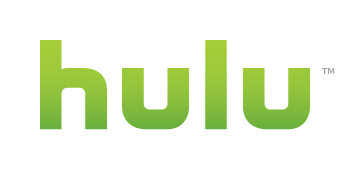Update: Hulu has provided 2,000 more invites for our readers. Get yours here.
I had the chance yesterday to sit down with Eric Feng, the CTO of Hulu, to discuss how things have gone during its private beta and where the service is heading in 2008. Here are some of the things I learned:
- The first line of code was written on August 6th, less than 3 months before Hulu debuted in private beta, and almost five months after the joint venture was first announced.
- Eric joined Hulu on July 15th, only a few weeks before development began, bringing with him the entire engineering team from Chinese video startup Mojiti (turns out the rumor we reported was correct).
- Hulu has about 30 developers, half of which are based in Beijing and focused on the site’s design and functionality, the other half of which are based in Southern California and deal with operations, advertising, etc.
- Hulu currently has “several hundred thousand users” who have submitted “tens of thousands” of feedback messages.
- The public launch should come in the next couple of months, probably around the end of March.
- Hulu’s private beta has been a technical one, as the developer team has had to work on stabilizing the service while sorting through feedback from testers and improving the user interface (search has been enhanced in particular).
- Hulu is built on Ruby on Rails.
- High definition video will be rolled out gradually over the coming year with more and more content; the company believes that 2008 will be a year when online video companies start focusing less on convenience and more on quality.
- Hulu has tripled its amount of content since private beta launch, with many episodes of shows going back to the first seasons, not just the last five that have aired on TV.
- Hulu is not only a place to view Hulu-hosted video but one to find video hosted elsewhere on the net; the service actually scrapes ABC’s websites so that it can provide deep links to that network’s content.
- RSS feeds have been added so users can keep track of new content added to the site.
- The company is experimenting with different forms of advertising, including overlay ads and trailers for movies.
- As far as sites like OPENhulu go, Hulu will address them on a case-by-case basis. The company seems most concerned about protecting its brand (the use of the name “hulu” in “OPENhulu” is problematic) and protecting the brands of its content providers. In regards to the latter point, Hulu actually has a blacklist of sites where people can’t embed videos. These are mainly sites that host content, such as pornography, that content providers don’t want their content displayed alongside. In general, Hulu can monitor where people embed its videos, and it withholds the right to deactivate any embeds. That said, it strongly supports the syndication of its content across the web.
- Nearly 85% of Hulu’s library is viewed everyday at least once.
- Hulu is working on providing its videos internationally but content rights issues will take time to work through. Eric couldn’t provide any time table for when we might see Hulu available internationally (if you don’t want to wait, see Duncan’s post).
- Downloads might come in the long term, but they are not something that Hulu is focusing on currently.
- And finally, “Hulu” actually comes from either of two Chinese interpretations. It could mean “interactive recording” (Hu + Lu), or it could mean a Chinese gourd that holds precious things. That company prefers the latter (they certainly don’t prefer our Swahili interpretation).
Our initial review of Hulu can be found here.
